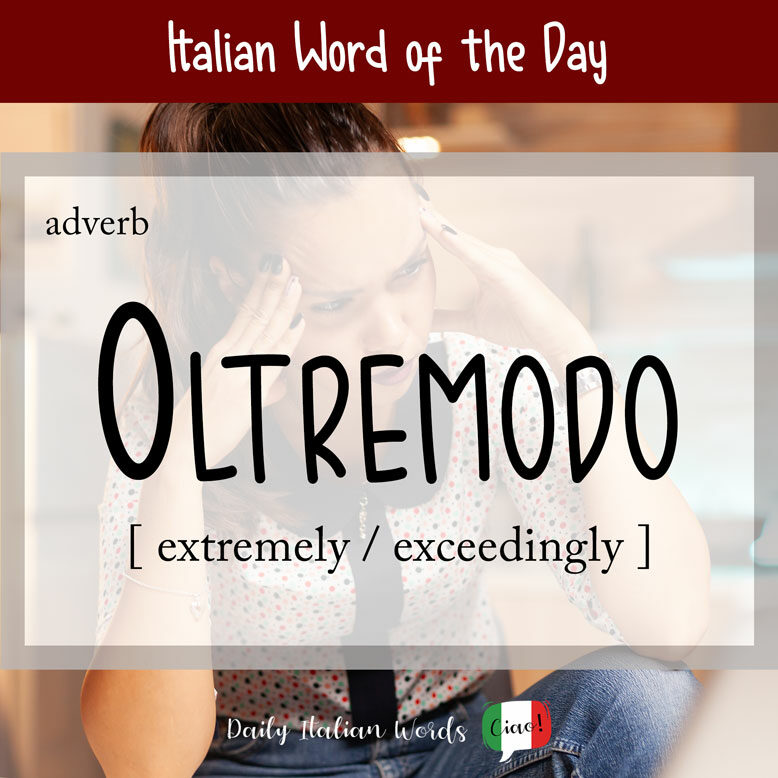Today we’re going to be taking a look at the advanced adverb oltremodo which means extremely or exceedingly. It is the combination of the words oltre (beyond, over) and modo (way), and can be written as two separate words.
oltremodo

Oltremodo normally appears after verbs and before adjectives and nouns. For example:
- annoiarsi oltremodo (verb + adverb) = to be extremely bored
- arrabbiarsi oltremodo (verb + adverb) = to get extremely angry
- essere oltremodo entusiasta (verb + adverb + adjective) = to be extremely enthusiastic
- essere oltremodo confuso (verb + adverb + adjective) = to be extremely confused
- avere oltremodo piacere (verb + adverb + noun) = to have the extreme pleasure
However, in rare cases it may appear after the adjective (e.g. essere lieto oltremodo = to be exceedingly happy).
Trovo che sia un caso oltremodo interessante, non sei d’accordo?
I find this to be an exceedingly interesting case, don’t you agree?

A very close synonym of oltremodo is oltremisura, with misura meaning measure. The two can be considered interchangeable.
Heather Broster is a graduate with honours in linguistics from the University of Western Ontario. She is an aspiring polyglot, proficient in English and Italian, as well as Japanese, Welsh, and French to varying degrees of fluency. Originally from Toronto, Heather has resided in various countries, notably Italy for a period of six years. Her primary focus lies in the fields of language acquisition, education, and bilingual instruction.


